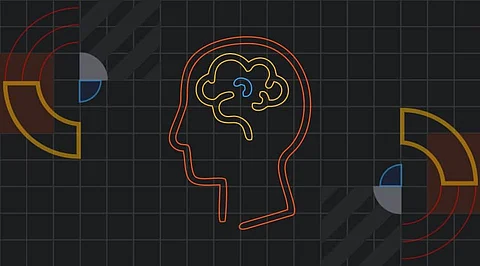

The field of artificial intelligence is detonating with products like IBM Watson, DeepMind's AlphaZero, and voice recognition used in virtual assistants including Amazon's Alexa, Apple's Siri, and Google's Home Assistant. Due to the massive impact of AI on humans' lives, the concern is growing about how to adopt a sound ethical AI strategy to shape future developments. Building ethical AI requires both an ethical way for building AI systems and a strategy for making AI systems themselves moral.
For instance, engineers of self-driving vehicles should consider their social results including guaranteeing that the vehicles are fit for making moral decisions.
As per one research from Deloitte, one in three cybersecurity managers rate ethical threats as one of the top three AI-related enterprise concerns. Subsequently, building ethical use of artificial intelligence that we can trust should be at the core of its plan and development. The process of building ethical AI, in any case, is definitely not straightforward. An ethical AI system has numerous moving parts like methodologies, partners and design standards. Further, posing relevant questions can help assemble a more profound comprehension of these viewpoints and how they relate to one another.
Here's how you can build an ethical AI system
Artificial intelligence is as good as the data it is fed on. If the data you are utilizing mirrors the historical backdrop of our own inconsistent society, we are, as a result, requesting the program to become familiar with our own biases. Essentially, the quality of information you are utilizing to train and test AI algorithms impacts the results. To build an ethical AI model, which is free of bias and grounded on ethics, organizations should train it utilizing a full-spectrum of data.
Data vetting is another key element. Vetting is the process of evaluating that the data so used is of good quality. When information is imported through an automated application, there could be blunders or missing data in the imported arrangement. Data vetting is likewise a significant phase that is coaxing out bias, which could be in your data. That is the reason it's fundamental to build systems to recognize these types of blunders and keep them from getting into the dataset.
Make a data and ethical AI risk system that is customized to your industry. A sophisticated system contains, at least, an explanation of the ethical principles, including the morally-driven bad dreams of the organization, a recognizable proof of the external and internal stakeholders, a governance framework, and an articulation of maintenance of the framework even with changing staff and conditions. It is imperative to set up KPIs and a quality assurance program to quantify the continued effectiveness of the techniques completing your strategy.
Further, create a rundown of the alternative activities that are valuable in a specific circumstance. The AI ethics committee will evaluate these activities and pick them dependent on moral contemplations, not simply on personal preferences. For instance, government authorities can think about whether to make military robots more intelligent and autonomous.
Moreover, recognize all individuals influenced by these activities, including people in the future as well as individuals as of now alive. For executioner robots, consider individuals who may be saved as well as ones that would be slaughtered.
Before carrying out AI technology, potential risk situations should be verified by an AI ethics committee. These evaluations can help in more vigorous screening standards and controls to be carried out before deployment or can end improper deployment altogether. Such foundational risk evaluations protect individuals and their essential rights, however, increase the credibility and acknowledgment of new technologies.
Further, it is likewise important to set well-defined responsibilities and accountabilities in the company to drive said processes and, in the long run, construct, carry out and screen an ethical AI.
Test and approve your ethical AI routinely if you need to ensure that the AI is ethical and doesn't have predispositions. You can likewise evaluate your data utilizing third-party tools. Such tools will assist you with surveying bias at different stages. For a compelling approval and verification, the third-party needs to comprehend the whole lifecycle of the AI-empowered framework: from assessing the significance of the training datasets to dissecting the model's objectives and how it measures success.
Join our WhatsApp Channel to get the latest news, exclusives and videos on WhatsApp
_____________
Disclaimer: Analytics Insight does not provide financial advice or guidance. Also note that the cryptocurrencies mentioned/listed on the website could potentially be scams, i.e. designed to induce you to invest financial resources that may be lost forever and not be recoverable once investments are made. You are responsible for conducting your own research (DYOR) before making any investments. Read more here.
